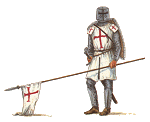The Children of Beslan. The unique depravity of modern Islamic terror. It's hard to fathom now--with the images of Russian children in body bags scorched into our memories--but when the history of the war on terror is written, last week may go down as a turning point. The official death toll at School No. 1 in Beslan stood yesterday at 335, more than one-tenth the number who died in the terrorist attacks on America three years ago this week. One hundred fifty-six were children--boys and girls taken hostage when they arrived for their first day of the new school year. Before their slaughter, by rigged explosives or sniper fire, their captors denied them so much as a sip of water.The depravity of this is hard to believe, but believe it we must.
For it is the new reality of this current age in which innocents are specifically targeted by Muslim terrorists in the name of some Islamic cause. In Russia, the murderers were Chechens, aided by Arabs believed to be allied with al Qaeda. And so the children of Beslan join the ranks of other victims of Islamic terror--in a Moscow theater, a Bali nightclub, a Karachi church, and the Twin Towers of New York. In the face of such horror, who can offer up any shred of justification? Yet that is precisely what has happened in the wake of every terrorist event the world has seen in recent years. By such lights, terrorism is viewed as a political act, intended to draw sympathetic attention to a cause--in this case the brutal Russian occupation of Chechnya.
Post-9/11, there were those who "explained" the attacks by blaming U.S. policy in the Mideast as behind the "desperation" of the hijackers. After the Madrid bombings, half the Spanish electorate effectively blamed their nation's participation in the war in Iraq by voting out the government that supported the U.S. In the wake of every suicide bombing in Israel, that country's policy on Palestinians is deemed responsible in many quarters, especially in Europe. Post-Beslan, who is prepared to blame the children?
On the eve of last week's Republican convention, President Bush told a television interviewer that the war on terror is not winnable. Pundits were quick to pounce on what seemed like a political slip, but Mr. Bush's meaning ought to have been clear. What he meant was that the war on terror was not winnable in a conventional sense. It would not conclude with Osama bin Laden ordering all Islamists to stand down the way the Emperor of Japan asked his countrymen to do at the end of World War II. As should be obvious by now, the war on terror cannot be won only by disrupting terrorist networks and shoring up homeland defenses. It is also a war of ideas, and as such can be won only if the widespread ideological support for terrorism found in the Muslim world and some quarters of the West can be transformed into widespread condemnation.
There are historical models for this kind of transformational thinking. In the century that just ended, fascism and National Socialism, ideologies fashionable among some Western intellectuals during the 1930s, were stamped out by the Second World War. Communism lost ground during 50 years of the Cold War that ended with the collapse of the Soviet Empire. All of these ideologies have been proven bankrupt, even in the parts of the world where totalitarianism still reigns.In making the case that the world needs to think differently about terrorism, Mr. Bush and other members of his Administration sometimes cite the example of the British in the 19th Century as changing the way the world thought about the slave trade.
By the end of the century, slavery may still have existed in parts of the globe, but no one was making the moral case for it. Douglas Feith, Undersecretary of Defense for Policy, explained the Administration's effort to de-legitimize terrorism in a speech last spring at the University of Chicago. "The world should view terrorism as it views the slave trade, piracy on the high seas and genocide," he said, "as activities that no respectable person condones, much less supports." That ideological struggle over the uses of terror is slowly being won in most of the world, but it remains at the center of the civil war within Islam itself--between extremists and conventional believers who are sometimes called moderates. That struggle cannot be won unless the vast majority of Muslims who condemn terrorism speak out publicly against such clerics as London-based Omar Bakri Mohammed, who told London's Sunday Telegraph that he would support hostage-taking at a British school if carried out by terrorists with a just cause.
Whatever Russian President Vladimir Putin's mistakes in Chechnya (see David Satter's article in The Wall Street Journal today), they don't justify the deliberate targeting of innocents. Nearly all nationalist movements--from the American revolutionaries to the Irish Republican Army--have had enough restraint to avoid the systematic murder of children. But there is something dysfunctional within the soul of modern Islam and its supporters that deems such depravity acceptable. Perhaps after Beslan more of the world, and especially much more of the Islamic world, will begin acknowledging this as the deadly poison it is. The source...
Crusader
Defeating Islamic Terror
- Darfur exposes trait of Arab and Islamic Racism. A...
- Ex-Muslim's site trashes Muhammad. To any Muslims ...
- Islamic Intolerance Proven and Verified. Question:...
Chronicles of the Conquest of Granada


United States Holocaust Museum
Policy Institute for Counter Terrorism
Kashmir,Paradise Turned Into Hell
Libertarian Intellectual P and P

 midi
midi







0 Comments:
Post a Comment
<< Home